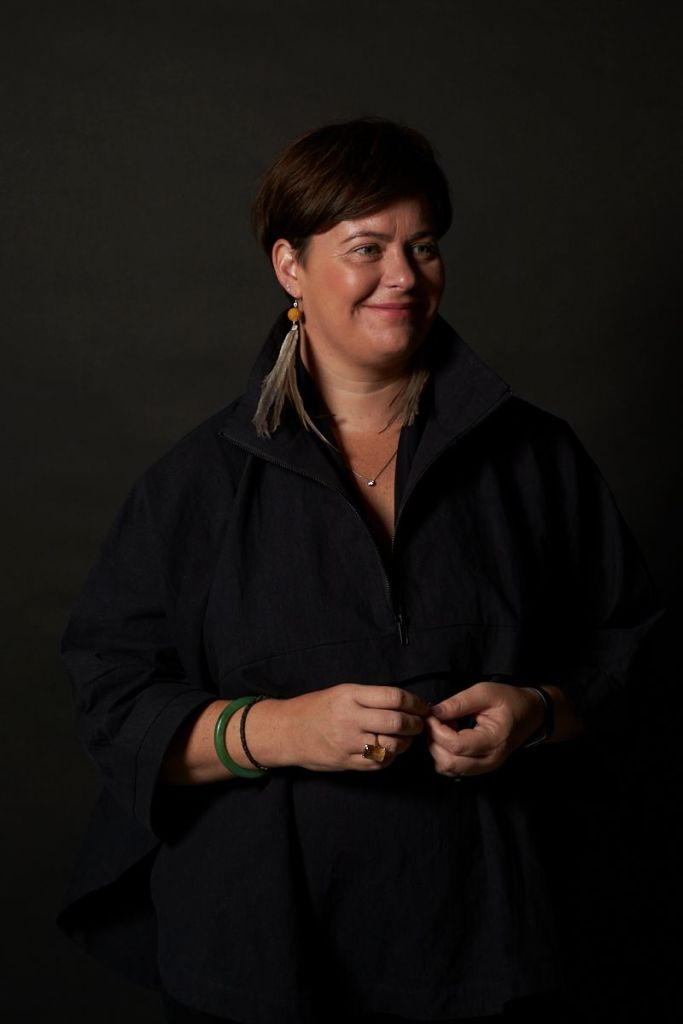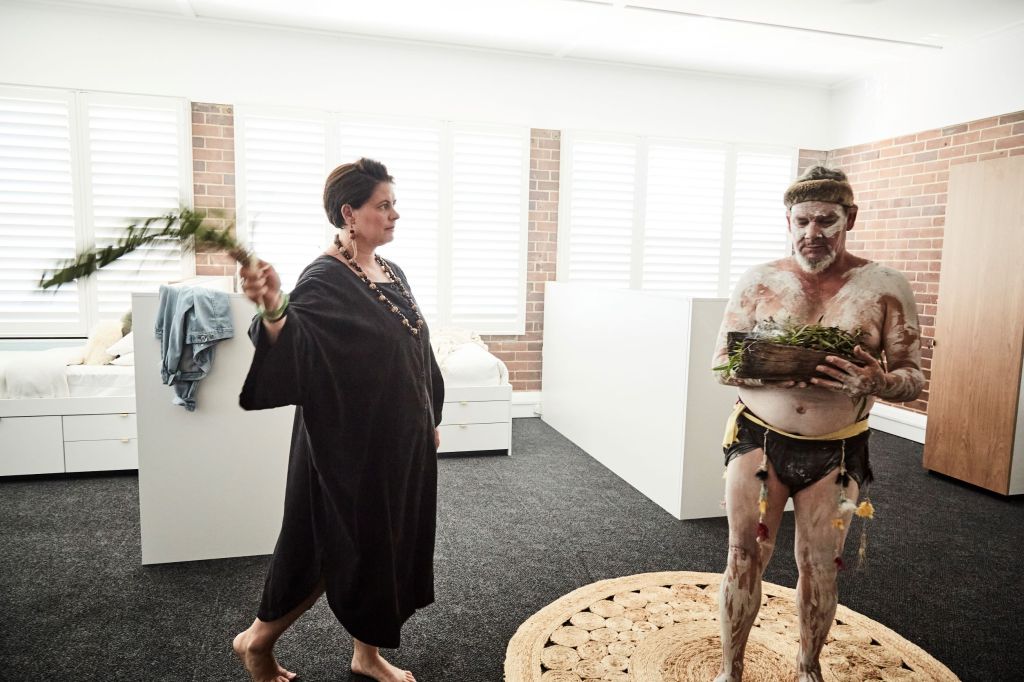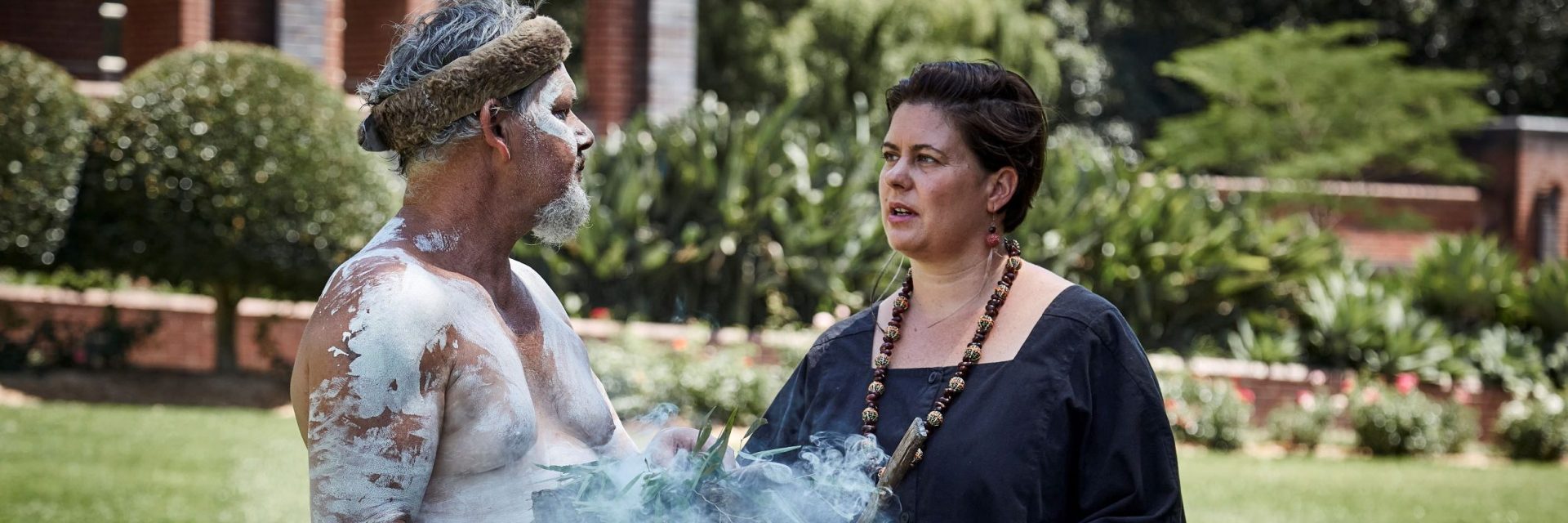Bernadette Hardy was going to become a nurse, but one connection with Indigenous Business Australia changed her life.

“Sometimes you have to be ready to find certain pieces of your life that are corner pieces,” says Bernadette Hardy, a Gamilaraay and Darug designer. With her husband, Chris, their hardyhardy design partnership is breaking boundaries across government and commercial projects, education, urban, retail and public space design.
“We have such human-centric systems and processes, but there is so much more that we are connected to in land, in sky, in water and it teaches us so much,” Hardy says.
“If I am designing for autism, people think I am trying to make the light less shiny or make the sound less intense, but I am actually trying to create a space where everyone can feel connected.”
– Bernadette Hardy
“Buildings are meant to make us feel safe. As shelter, we were the first architects and they were made of natural materials. The gunya, or humpy, is made of natural materials, it’s cleverly engineered, it goes back to Country, it gets put up for the next person moving on Country. It was very clever and considered and designed to give a sense of being comfortable and responsible when you moved.”
A classroom is designed as a space of learning, but Country is shut off at the door, Hardy says. “It is not an active part of the environment, and yet it is one of the most powerful communicators, almost like another teacher. We have this beautiful teacher there every day, in the form of birds, in the form of trees, in the form of wind, rain. How that manifests in the space, is very powerful.”
When her daughter Emma, who is diagnosed autistic, was starting her education, she was finding it difficult to enter a built environment space. “The buildings were disabling her,” Hardy says. “Sound, light, pressure: she didn’t feel safe.
“We went through years of early intervention to get her to enter a built environment space. That was a milestone and we have found a wonderful school that has been so supportive, but children are still moving to find places of belonging.
“If I am designing for autism, people think I am trying to make the light less shiny or make the sound less intense, but I am actually trying to create a space where everyone can feel connected.”
Hardy is making it her job to make spaces feel safe.
For the redesign of the boarding house interiors at Pymble Ladies’ College in Sydney, Hardy describes the project as “tricky” being part of a heritage building. Every space could be different, window heights were not all the same, so they came up with a modular system that would work across most areas and could be slightly changed for some.

“It was like having a set of beautiful jewels that needed to be put into a setting. I am the daughter of a joiner, it is in my veins. The protocols that dad taught me are all in that work. We fought hard for natural materials that absorb sound and stand the test of time,” Hardy explains.
Hardy agrees that designing for diversity and inclusion, is incredibly important, but it is also important to understand that diversity and inclusion is more than human, with bio/local regions needing to be included, too.
“Design and architecture have that ability to change human behaviour, but it is coming from Country and guiding us, not being guided by the human-centric design.
“Country speaks through me through my dreams, through my work. I call it Country-sensing design. It speaks to me and then I then interpret that into work when the values align, and the people are open to unlearning and relearning. There’s a lot that this place can teach us. That is how Country can have a voice.”
The Indigenous Business Australia (IBA) funding enabled her to photograph her portfolio and build a website to a standard and quality that truly showcased the company’s work and ethos.
“There were barriers that IBA helped me overcome that were more than just about the investment. It was about giving me a space I could go where I could feel safe, and meeting me in a café near my home, or finding me a parking space so I could drive to a meeting and then get back to my kids. It was far and beyond just the financial investment.”
In its Impact Report 2021-22, IBA found entrepreneurs that had come to them as business customers had been able to bring significant benefits to their employees, grow their businesses and through their roles as leaders, contribute back to community and culture.
Hardy says that when somebody feels a sense of belonging within a space, they can feel they can be themselves there and that can translate into something very powerful in building relationships.
“Like a river, it has to flow at its own pace, give it guidance and support, but allow it to meander and find its own way. Country is the author. Dharug Country is guiding me, I am not guiding it.”
